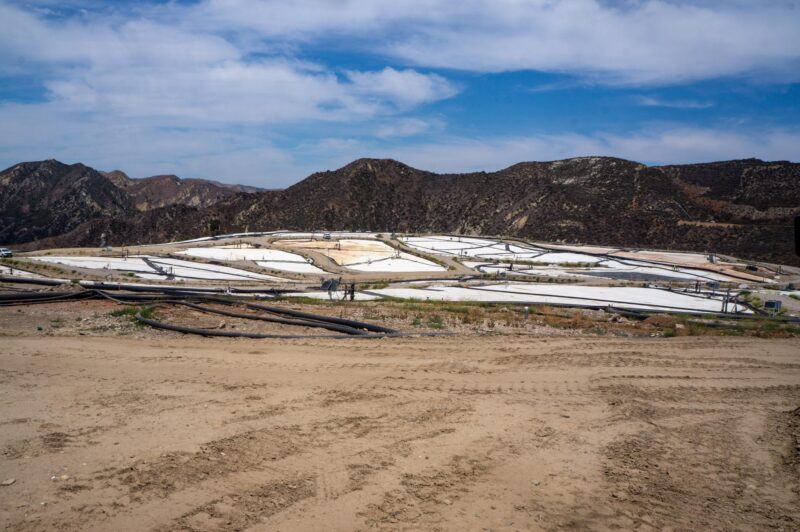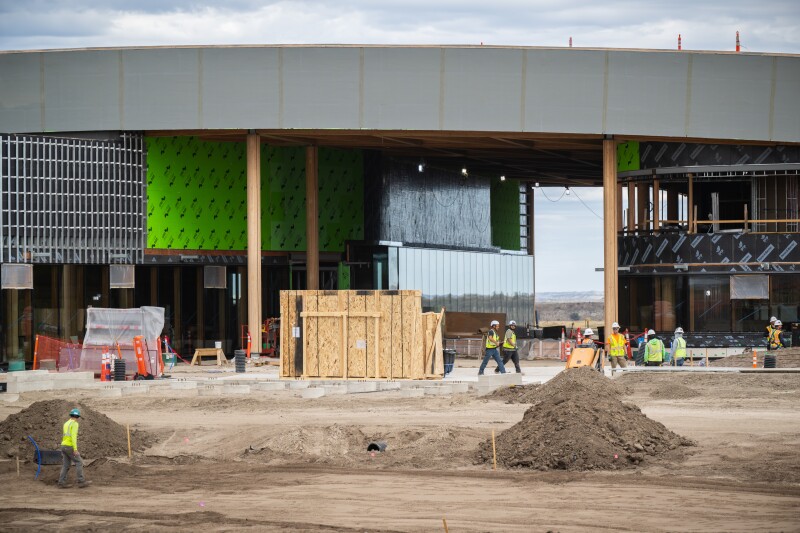UPDATE: Residents near the Chiquita Canyon Landfill are facing urgent health concerns as a multi-agency task force acknowledges lingering issues. During a meeting on October 14, 2023, Todd Sax, chief of the enforcement division for the California Air Resources Board, confirmed that health problems reported by residents of Castaic and Val Verde are linked to odorous compounds, with more research still needed.
Community members have voiced health complaints since early 2023. Sax stated, “We’ve been arguing about this among the various agencies… our best estimate of the public health impact and their causes here is that it is caused by odorous compounds,” he explained. Reports indicate that these compounds can trigger serious symptoms, including bloody noses, headaches, and tremors.
The situation remains dire; regulators revealed the landfill is still producing approximately 200,000 gallons of leachate daily. Despite claims from landfill operators that conditions are improving, state officials counter that the area affected by an underground temperature event has likely doubled. “The reaction area for the landfill’s underground elevated temperature event is growing,” Sax confirmed, raising more questions about the public health implications for nearby residents.
Residents are also pursuing legal action against the landfill and its parent company, Waste Connections, with lawsuits amplifying the urgency of the situation. Sax did not address concerns regarding potential cancer clusters, a significant issue for many families affected by the landfill.
In a related legal update, Stephanie English, field representative for Los Angeles County, shared that the judge has requested parties to reach an agreement within 30 days regarding the relocation of affected residents. “We hope and believe that Judge Maame Frimpong will continue this process to relocate or home-harden for residents,” English said, emphasizing the urgent need for a resolution.
Residents have expressed frustration over the lack of definitive health studies. Sax acknowledged the demand but stated that comprehensive assessments of the pollutants’ long-term effects are scientifically challenging. The Air Quality Management District is currently assessing testing accuracy for acrolein, a known carcinogen, and is contracting for testing of PFAS, sometimes referred to as “forever chemicals,” which pose a significant threat to local water supplies.
“Remaining unknowns,” Sax noted, “When we’re telling you it’s noxious odors, we’re not in any way trying to minimize your symptoms.” He reassured the community that their concerns are being taken seriously, yet emphasized the complexity of determining specific health impacts.
As residents await further studies and court decisions, the urgency of the situation continues to grow. The community’s health and safety hang in the balance, and the next steps in the legal process and environmental assessments will be critical to addressing these ongoing concerns.
Stay tuned for more updates as this situation develops.







